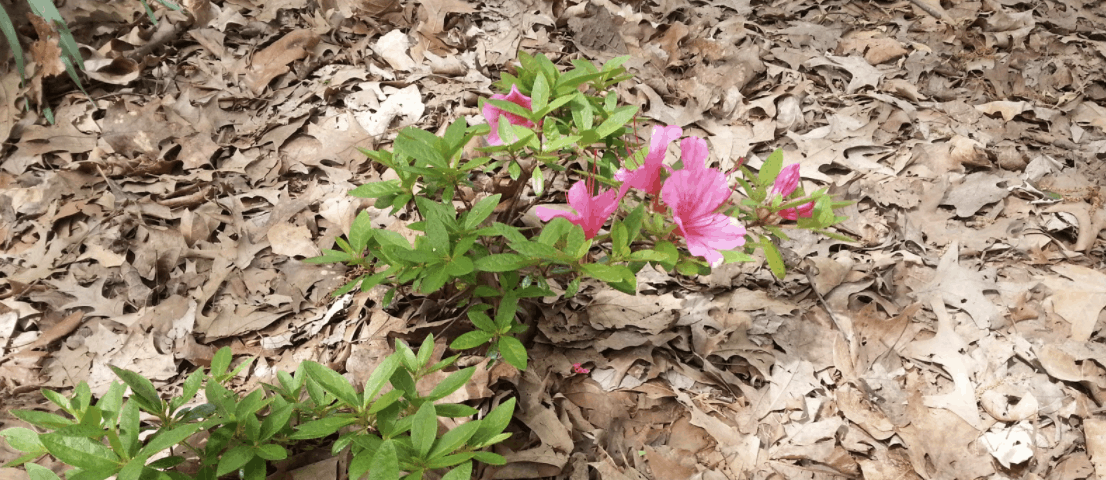“When young and old alike are open to the Holy Spirit, they make a wonderful combination. The old dream dreams, and the young see visions” (Christus Vivit, 192)
In the midst of these beautiful spring days, I find myself dreaming. My mind wanders off to bearded irises. As much as I try to focus on virtual classes, community chores, or the day’s Gospel, I get lost in an understory of flowering dogwoods in the speckled shadows of pin oaks. I imagine a garden where shasta daisies dance and shine in the sun, where cardinals sing and squirrels play, where the monarch butterflies have returned after years of a mysterious absence.
I dream of a peaceful place, a canvas of crisp brown leaves dotted with pink azaleas and the rustling of robins excavating for earthworms. This dream, however, is not my own. It belongs to my grandma; she gave it to me.
“All of us, even before our birth,” writes Pope Francis, “received as a blessing from our grandparents a dream filled with love and hope, the dream for a better life.”
This dream was handed to me by my grandma in a bag of gnarled iris rhizomes, like a knot of arthritic fingers adorned with sharp green fins. On that summer day many years ago, Grandma planted within me a dream of a human family that rejoices in letting God take the lead.
That day, Grandma and I worked together to dig out the grass from a forgotten patch next to my garage. When the earth was exposed, we laid the irises in their new bed, covering each one gently with a blanket of topsoil.
In the years that followed, so many visits to Grandma’s included a hunt through her garden for plants that were waiting to be shared. We would wield the trusty “sharp shooter,” a narrow shovel perfect for the precise maneuvering needed to parcel out tuberous clumps of hostas or unearth the deepest taproots. Stopping along the way, Grandma would teach me the plants’ names, from the obvious and apt to the puzzling and peculiar. Without fail, I would come home with bags of bulbs or a trunkload of shrubs. As my garden grew, her dream took deeper root in my soul.
Grandma has always reminded me, and more so as old age has limited her ability to do the digging and planting herself, that God is the real gardener. God shelters the plants from winter frost and coaxes them into bloom each spring. There is no sprinkler in Grandma’s garden; God waters the plants with rain. When people compliment the dazzling array of flowers—the purples, yellows, and reds—that burst forth in her yard this time of year, Grandma uses the opportunity to praise the Creator.
From the way my grandma tends her plants, I learned that Creation is not something to dominate. Gardening is not about the perfectly manicured and poison-soaked lawn of the American Dream; in fact, you will find very little grass in my grandparents’ yard. If grass doesn’t want to grow, Grandma figures, why force it?
And fertilizer? As the leaves fall, they collect at the base of the trees, a feast for an army of decomposers. If there are too many leaves for them to eat, Grandma piles them behind Grandpa’s workshop where they, along with food scraps and coffee grounds, morph into a bounty of rich soil. Grandma composted before it was cool, and her patient trust in the slow work of God, the natural cycles of death and new life, has paid dividends.
My grandma’s dream helps me envision a human family that cares for our common home with humility, patience, trust, and love. I can imagine a world where we choose to listen to the cry of the earth because we have learned to cherish all of God’s gifts. I see a world where we trust in the work of God’s grace, and through our labor strive to let God’s glory shine. We dig a little here, plant a little there, and then step back and watch with wonder as it blooms.
When we dominate the earth, it obscures God’s ways. When we cooperate with the Creator, then beauty, harmony, and love cannot be contained. Our obsession with control can lead us to believe that somehow the final victory in the endless war on dandelions will bring us peace, or that pouring fertilizers on our lawns will obtain for us the perfect order for which we long. Just the opposite is true.
When we let God be God and abandon our need for control, we begin to see that the world, as Jesuit poet Gerard Manley Hopkins observed, “is charged with the grandeur of God.” We can feel the peace that comes with receiving and enjoying the beautiful array of gifts that God pours on us each day. Our perspective can shift from looking for control to seeing nothing but grandeur.


